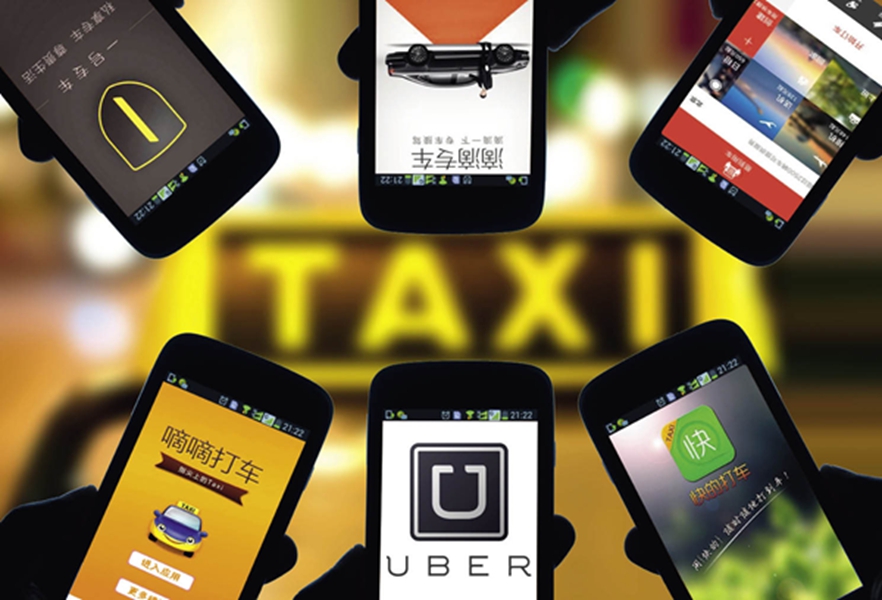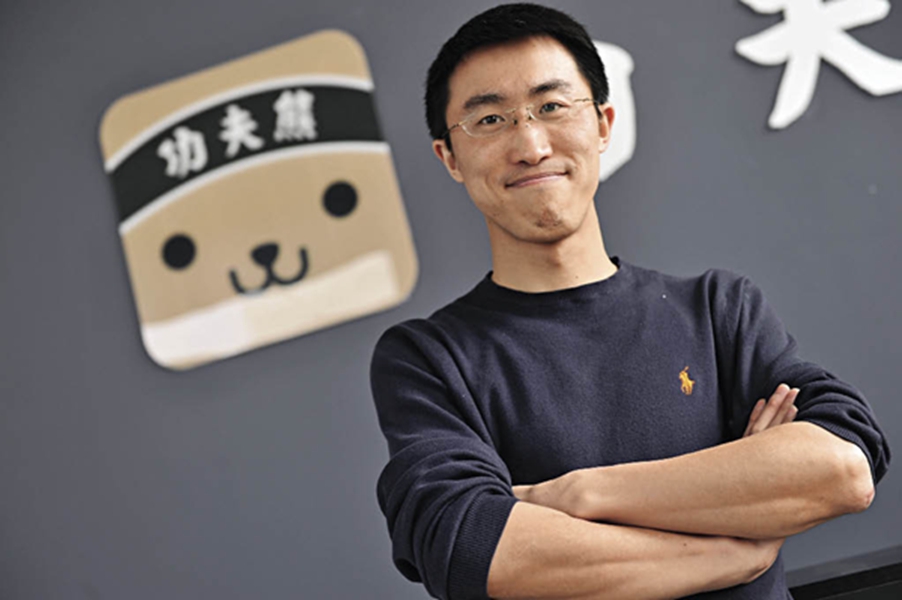By staff reporter HU YUE
By staff reporter HU YUE
DURING the 2015 ‘Two Sessions,’ deputies from Internet companies suggested that the ‘Internet Plus’ be included in the national action plan,” Tencent Chairman & CEO Ma Huateng, or Pony Ma, recalled. “When Premier Li Keqiang delivered the government work report the following day, I was amazed to hear the phrase, ‘Internet Plus’.”
Ma is one of the pioneers advancing the development of the Internet in China. A deputy to the National People’s Congress (NPC), he proposes bills relevant to the Internet industry every year.
In the last two decades, the Internet has maintained a strong momentum in the country. From the first generation of Pentium, which is often referred to as the “586 computer,” to social media like micro blogs and WeChat, and to mobile Internet and Internet finance, the Internet industry has experienced fast development in China, and has changed many traditional industries and people’s way of life.
New Economic Engine
In 2014, the top three ranks in China’s rich list were occupied by Jack Ma (Alibaba.com), Pony Ma (Tencent), and Robin Li (Baidu.com), indicating the start of a new economic era.

The 2016 government work report acknowledged the importance of Internet Plus: “Implementation of the ‘Internet Plus’ action plan will strengthen the new engine for economic development.” Currently, China’s economy has entered the “new normal” phase, where Internet-based new industries enter the spotlight and form a sustained driving force within the 13th Five-Year Plan period (2016-2020).
In the field of e-commerce, the China E-commerce Research Center report showed that in the first half of 2015, the country’s online trade volume stood at RMB 7.63 trillion, up by 30.4 percent. B2B accounted for RMB 5.8 trillion and online retail RMB 1.61 trillion, increasing by 28.8 percent and 48.7 percent respectively.
The figures indicate that e-commerce wherein B2B business dominates has matured in China. Moreover, new business models kept emerging in this field, which is expected to boost stable growth of the entire Internet economy.
From the perspective of financial capital, the rise of Internet finance, as long as it remains under effective supervision, is galvanizing the domestic capital market. Liu Mingkang, CPPCC member and former chairman of China Banking Regulatory Commission, expressed strong interest and support for Internet finance: “New modes such as Internet business, mobile Internet banking, big data, and cloud computing will probably overturn the existing financial industry. The subversion will cut the cost and improve the efficiency of capital allocation and market distribution. It will be a good, innovative try.” In the 2016 “Two Sessions,” Chinese Premier Li Keqiang reiterated the need to “encourage financial institutions to develop new consumer credit products.”
Internet finance was for the first time included in the 13th Five-Year Plan, which explicitly proposes to “regulate and develop Internet finance” and strengthen supervision, thus guaranteeing its healthy development and adding impetus to the real economy.
Change the Way of Life
The veracity of the phrase, “The medium is the message,” coined by Marshall McLuhan is evident in the Internet age. An invisible network is not only the primary tool of information transmission, but has also changed the way people lead their lives.

“Maker” Meng Junxian has developed a range of apps in multiple fields.
Almost half of all Chinese today admit they can’t live without the Internet. App maker Meng Junxian created the online health service platform Gongfuxiong (Kung Fu Bear). “The Internet has improved our quality of life and also expanded our outlook. It has bridged the information divide between us and other countries,” he said. “We Chinese have turned some good ideas into reality via the Internet, which represents social progress here.”
The “Internet Plus” concept aims to integrate resources through information technologies and optimize allocation in such fields as transportation, logistics, trade, tourism, catering and household services, childcare and elderly care, and education, and to nurture a batch of new consumer businesses. Salient examples include online education and training platforms, home-based care for the aged, and smart logistics that integrate online and offline resources.
Even the government has embraced the Internet for further administrative reform. The 2016 government work report states: “We will carry out the ‘Internet Plus government services’ model and promote better information sharing between government departments, so that the public and businesses need make fewer visits to government offices to get things done, go through simpler procedures, and experience satisfactory service. We will cut out the red tape and root out illegalities to ensure that the people have more equal opportunities and greater space for creativity.”
In 2015, Tencent cooperated with several local governments on a pilot program called “Internet plus traditional industries” in such fields as public service, traffic, and health care, according to Pony Ma. He believes that, under the principle of innovative development as stressed in the 13th Five-Year Plan, the year 2016 will see deepened reforms to the public service sector. For instance, Tencent is soon to work with local tax administrative organs towards the issuing of electronic invoices. “Public service is expected to be far more efficient due to innovation and practices,” Ma said.
Streamline the Industrial Structure
The 13th Five-Year Plan pledges to give the Internet more space, and seize the trend of information technology, thus carrying out the Internet Power strategy. This is the first time that the Internet and mobile Internet have been included as cornerstones of the national strategy. It is clear that in the next five or more years the structure and rules of tranditional industries will be transformed through integration with the Internet.

The opening ceremony of the Internet Carnival 2016 in Beijing.
“As part of the traditional industry, we are actively adapting to the Internet,” said Xie Zilong, NPC deputy and chairman of LBX Pharmacy. His efforts include opening online stores on e-commercial portals like Taobao.com and JD.com, developing apps, and opening accounts on social media. “We traditional companies wish for more channels and ways to incorporate with the Internet. It is an active response to the Internet Plus strategy, but ultimately a demand from ourselves, as the Internet is the trend,” Xie said.
The Internet as a tool can expand the business scope of traditional industries, and more importantly, create a benign development mechanism that secures efficient, innovative enterprises more opportunities, thus realizing optimized resource allocation in their respective sectors.
For example, the rise of cab-hailing apps in the last couple of years has posed a severe challenge to the taxi industry, but it also ushered in an opportunity for adjustment and reshuffling, as the existing rules and half-monopoly have been destroyed.
Besides the tertiary industry, the Internet has been also widely integrated with agriculture and industries. For instance, the geographical origin of agricultural products can now be traced via QR codes. This will solve food security issues, and also create a new mode for produce sales.
Furthermore, the Internet Plus strategy has created an amiable atmosphere for innovation and startups. Kung Fu Bear founder Meng Junxian set up his own company in 2014, only two years after graduation. The “maker” has developed a range of apps in multiple fields. The most popular one, Kung Fu Bear, pools thousands of professional masseurs and sends them straight to clients’ homes.
Gongfuxiong is one of hundreds of thousands of startups in new business. The Chinese government has established a RMB 40 billion fund to support these startups in emerging industries. The Internet and innovation will dynamize the country’s future development.